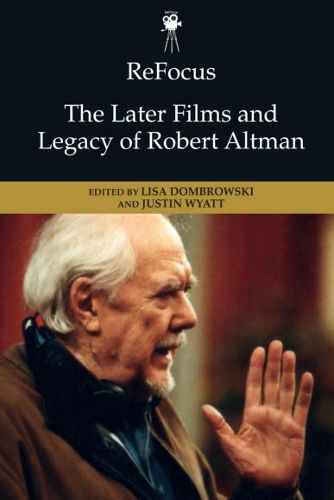Readings Newsletter
Become a Readings Member to make your shopping experience even easier.
Sign in or sign up for free!
You’re not far away from qualifying for FREE standard shipping within Australia
You’ve qualified for FREE standard shipping within Australia
The cart is loading…






Illuminating the industrial, cultural, and aesthetic significance of the later years of one of American cinema's most influential auteurs, this anthology combines scholarly essays, original interviews with Robert Altman's collaborators, and previously unseen photographs from the Robert Altman Papers held at the Special Collections Research Center, University of Michigan Library. The book considers post-1970s Altman as a way to rethink and reconceive his authorship, expanding our understanding of the development of Altman's personal aesthetic and production practices; his adaptation of existing source material; the representation of sex, gender, and identity in his films; his relation to the changing landscape of American independent cinema, and his unfinished projects. Interviews with key Altman collaborators like Alan Rudolph, Ira Deutchman and Anne Rapp highlight their contributions to Altman's career. Rather than place aside the extensive work on Robert Altman to date, this comprehensive book offers texture and depth to previous ways of thinking about Altman's creativity and contribution to American cinema.
$9.00 standard shipping within Australia
FREE standard shipping within Australia for orders over $100.00
Express & International shipping calculated at checkout
Illuminating the industrial, cultural, and aesthetic significance of the later years of one of American cinema's most influential auteurs, this anthology combines scholarly essays, original interviews with Robert Altman's collaborators, and previously unseen photographs from the Robert Altman Papers held at the Special Collections Research Center, University of Michigan Library. The book considers post-1970s Altman as a way to rethink and reconceive his authorship, expanding our understanding of the development of Altman's personal aesthetic and production practices; his adaptation of existing source material; the representation of sex, gender, and identity in his films; his relation to the changing landscape of American independent cinema, and his unfinished projects. Interviews with key Altman collaborators like Alan Rudolph, Ira Deutchman and Anne Rapp highlight their contributions to Altman's career. Rather than place aside the extensive work on Robert Altman to date, this comprehensive book offers texture and depth to previous ways of thinking about Altman's creativity and contribution to American cinema.